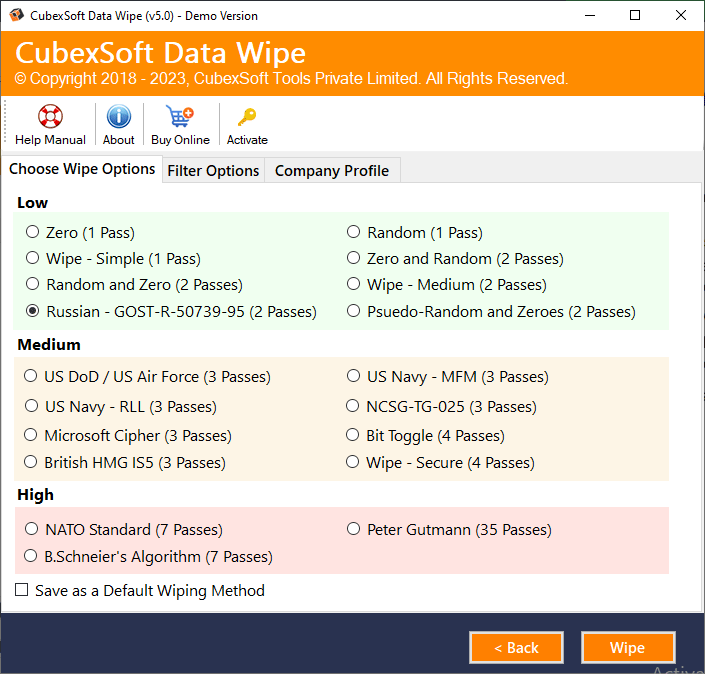Don’t we store and transmit sensitive information through digital media? So what about the security of all this confidential information? Organizations nowadays are highly concerned regarding their data security as data breaches have turned out to be the new normal in today’s world. Data breaches result in reputational damage, financial losses, and legal issues. This is exactly why the governing bodies have set up the requirements for data security compliance. Penetration testing is the key tool for data security compliance. In this article, we will have a broader look into what penetration testing is, its process, and all its key benefits with regard to data security compliance.
What is Penetration Testing?
Penetration Testing is also known as ethical hacking which is a controlled and well-thought-out effort to recognize weaknesses within a company’s computer network. The major goal of penetration testing is to measure the company’s data security level by arousing possible security threats so that the company can grapple with the actual world threats. Penetration testers do the testing only after receiving the client company’s consent. An experienced Penetration Testing Company can Identify the security loopholes in the system, helping you protect your company’s crucial data.
What is the Process of Penetration Testing?
The process of penetration testing is classified into different stages.
- Planning
The first and foremost stage of penetration testing is thorough planning. Planning includes identifying the scope of the test, determining objectives, and setting the rules i.e., deciding which system and to what extent the testing has to be done. - Enquiring
The second stage includes accumulating major information like domain name, IP address, and computer architecture which are important to recognize the vulnerabilities within the company’s system. - Inspecting
To identify the vulnerability of the system, scanning for open ports and services is done using various tools. Open ports are the major possible access points for attackers, due to which testers need to identify the possible open ports to move towards the next step of the process of penetration testing. - Collecting Data
The very next step to inspecting is gathering information about the system, which includes assembling data such as user accounts, network shares, and configuration details. This helps penetration testers to know more about the system, evaluate security measures, and organize eventual attacks. - Vulnerability Evaluation
In this step, the tester uses all the knowledge gained through the inspection and collection of data to locate possible vulnerabilities and decide if they can be exploited. This is possible using automated tools and also through manual assessment. - Exploitation
This is known as the most delicate step of the process of penetration testing as in this particular step, after locating the possible vulnerabilities, the penetration tester tries to get into the system and exploit the discovered vulnerabilities, which may cause system damage. System crashes are rare but still, this has to be done cautiously. - Reporting
The process of documenting the findings of the penetration test is reporting. Through these findings, the organization can repair any weak points in the system and improve its security levels. A penetration test report must include details of the vulnerability, an explanation of how and how much they will affect the business, an analysis of the technical risks, and guidance for fixing the vulnerabilities and security threats. - Post-Test Activities
This is the final step of the process of penetration testing, in which there are discussions with regard to the end results of the test with the organization’s security teams to make sure they understand the loopholes and help them fix the loopholes in their security system. There is a follow-up test done to ensure the located loopholes have been successfully fixed. After this, all the test reports are maintained for compliance and auditing purposes.
What are the Benefits of Penetration Testing
Penetration testing is an extremely important tool for organizations looking to protect their crucial sensitive data and also follow relevant rules and norms. Here are the key benefits of penetration testing for data security compliance.
- Locating Vulnerabilities
With the help of penetration testing, organizations can identify weaknesses and vulnerabilities in their applications, networks, and systems which can let them fix them before unethical hackers exploit them. It helps to lessen the risk of data theft and the failure to comply with data security regulations. - Adherence Analysis
Penetration testing helps to evaluate an organization’s adherence to data security standards regulations, namely HIPAA, PCI DSS, GDPR, or sector-specific demands. It also helps to prove that the organization is stern about data safety and can aid in compliance audits. - Risk Mitigation
Through penetration testing, organizations can not only ward off the risks linked to data security compliance but also fix the most critical problems by locating and evaluating vulnerabilities in their system. - Security Control Assessment
By penetration testing, organizations can examine the efficiency of security controls and measures to safeguard sensitive data. This comprises firewalls, intrusion detection systems, access control, encryption mechanisms, etc. This way organizations can make sure whether their security tools match with the regulatory demands or not. - Data Safety
While organizations can evaluate the efficiency of data protection measures like data access controls and encryption, they can also ensure their confidential data is secure and as per the data security regulations with the help of penetration testing. - Policy and Procedure Verification
Organizations can validate the influence of security policies on data security through penetration testing. This is to ensure that the security rules are not just written but followed too. - Incident Response Testing
Organizations need to have efficient plans to tackle security problems, through data breaches and checks performed by penetration testing, organizations can detect, stop, and control security issues. - Compliance Auditing Support
Organizations can get all the required papers and proofs addressing their effectiveness at keeping their data safe through penetration testing, which can help them pass compliance audits. - Strengthened Customer Trust
Penetration testing helps organizations build client trust as customers trust organizations who protect their data well and have proof of their commitment to keeping data secure and compliant. - Cost-Cutting
Opting for penetration testing not only saves the organization from data theft, legal fines, a bad reputation, etc. but also helps to escape huge costs by detecting and fixing loopholes in the system sooner than later. - Legal and Regulatory Compliance
No organization likes to get into legal trouble for non-adherence to rules and regulations, penetration testing provides real proof of following the prescribed data security laws and regulations.
Discover how cyber-ready your organization is to face real-world cyber threats through on-demand Penetration Testing Services.
Conclusion
Penetration Testing is a crucial element of data security strategy. Organizations opting for penetrative testing will be pre-prepared to keep their data safe which will evenly benefit their business. Are you looking to Hire a Penetration Tester for your business? At Webclues, we offer professional penetration testers or a team of IT security experts who can guide you to locate the possible vulnerabilities in your business’s cyberspace and help fix them keeping your data super safe.




